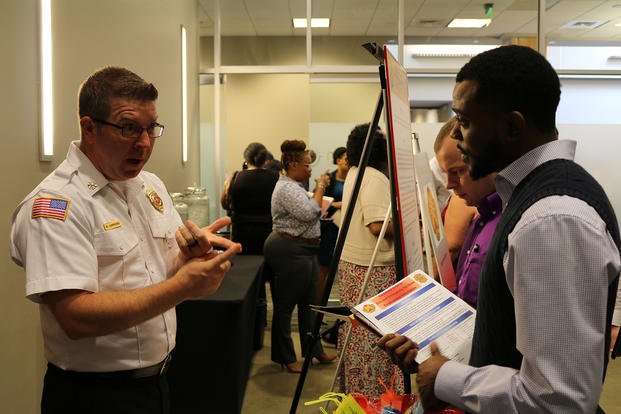There is more competition in the job market than there was a few years ago, so it pays to get out there. Attending a job fair beats sitting at home waiting for the phone to ring. If nothing else, it's a place to schmooze and find out what's happening. Your approach to the fair may make a huge difference in whether you achieve satisfactory results.
Joe received his layoff notice on a Friday. After a week at home, he knew he had to get out and make some contacts. He found and landed his last job at a job fair. He soon discovered on the internet that there was a tech fair in his area the following week.
Armed with several copies of his resume, Joe set out with an air of confidence. His confidence got a blow when he arrived at the site and saw the long line of people waiting to get in. This was going to be a very different experience than his last job search.
As he walked down the line, he met friends and former co-workers. He tried to find out what was going on inside and how to deal with it. Some of his friends were veterans of the system and were glad to share some survival tips with him.
Here are 10 of those tips:
- Once inside, get a list of participating companies and choose which companies interest you. Spend your energies on them rather than wandering from booth to booth.
- Check out job openings for each company of interest, typically found on a listing sheet. Or use a computer, if provided, to look up individual companies.
- Get a floor-plan map -- usually at the entrance or information table. Plan a route to move around the floor quickly, visiting your companies of interest.
- Stay upbeat and energized. Try to make an impression through your enthusiasm about the work. Also try to engage the company representative in conversation about the company and listen to what the rep has to say.
- Try to talk to the hiring manager or senior member of the team, if possible. Recruiters can be helpful regarding the company and what they are seeking, and human resources personnel can give you information on the hiring process and the company, but the hiring manager is the one with the clout.
- Let the person you talk to know what you have to bring to the company. Be prepared with a short statement (less than two minutes) about yourself and your background. Try to hook the interviewer's interest with something unique about you.
- Try to get a name or business card from anyone you talk to so you can use the name as a reference when you follow up.
- Follow up by sending a letter and another copy of your resume to human resources and the hiring manager. Mention that you talked with them, or a company representative, at the fair. Tell them how excited you are about the position. Let them know you are the solution to their problem; you can make a difference and add value.
- Follow up in a week or so with a phone call, inquiring about the position and the hiring status.
- Use the job fair as one of many sources in planning your job search. Do further research on participating companies by visiting their websites and checking for additional openings and opportunities.
Try not to be overwhelmed by the size of the job fair or the number of job seekers in attendance. Keep focused on the companies you want to interview with. Don't be discouraged if you don't go home with a job offer or formal interview lined up. This should be just one step in your research and networking process.
Consider any new contacts you meet or information gathered at the job fair as a positive addition to your resources. Be persistent in your endeavors; job opportunities sometimes come from the least expected sources at the most unexpected times.
Want to Know More About the Military?
Be sure to get the latest news about the U.S. military, as well as critical info about how to join and all the benefits of service. Subscribe to Military.com and receive customized updates delivered straight to your inbox.







